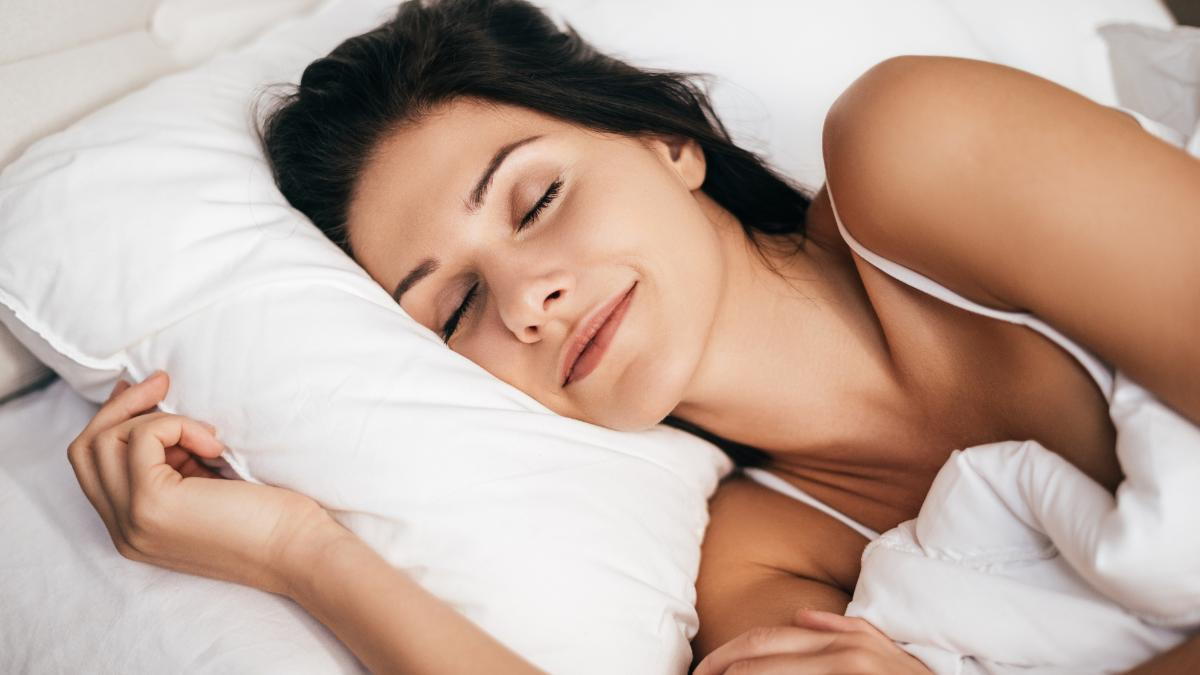ADVANCED HEALTH PROFESSIONALS

- posted: Sep. 29, 2020
Remember those early days of quarantine when we relished wearing pjs all day and sleeping in? While novel and wonderful at the time (if you forgot there was a killer virus on the loose), all of this lounging and dozing came with a few downsides.
One of the most annoying negatives we’re noticing is a change in our sleep patterns. Binge-watching shows until the wee hours and sleeping late has made it harder for us to get back into the swing of things now that life is returning to a new sense of “normal.”
Some of us have to get up on time to work, drive the kids to school, or help monitor their remote lessons. Now that we’re struggling to fall (and stay) asleep at night, this is becoming a bit harder. Don’t worry; we can help.
Here are five things you need to STOP doing today to undo the damage caused by a lax pandemic sleep routine.
1. Stop Sleeping in During the Week Sleeping in has to be one of the best parts of quarantine. School and work commutes ground to a halt, allowing us to turn off the alarm, roll over, and enjoy an extra hour (or more) of zzzs each morning. What bliss!
In the beginning, this was helpful at combating sleep deprivation. A study published in the American Journal of Physiology-Endocrinology and Metabolism, for instance, found that sleeping in on the weekend can reduce sleepiness and cortisol levels. Over time, however, oversleeping can cause negative effects.
Limit your sleep-ins to once or twice a week and set an alarm so you don’t stay in bed for too long. Just an hour extra is enough to feel better rested.
2. Stop Drinking Alcohol Before Bed We know you don’t want to hear this, but all that extra drinking you’ve been doing during quarantine can mess with your sleep, not to mention your waistline. We’re not judging. Trust us, we too have been guilty of this indulgence.
If you’re hoping to improve your sleep, though, it’s time to limit the number of drinks you consume daily (no more than one). And don’t consume any alcohol four hours or less before you intend to fall asleep.
According to a study by JMIR Mental Health, consuming two drinks a day is enough to reduce the quality of your sleep by 40 percent. Even drinking less than half a glass can cut our sleep quality by over 9 percent. While drinking alcohol may help you fall asleep (by releasing adenosine—a sleep-inducing chemical in the brain), it can also cause you to awaken in the middle of the night.
3. Stop Exercising Vigorously at Night We all know that exercising is good for us. It wards off diseases and helps improve our mood and cut down on stress. According to a study of 43 elderly adults suffering from insomnia, brisk walking and moderate strength training helped patients fall asleep faster, stay asleep for longer, and gain a better quality of sleep. Exercising too close to bed can have the opposite effect, so aim to work out no less than three hours before lights out.
Instead of exercising, try stretching before bed. A few light, gentle stretches can help ease your mind as well as those tight spots that creep in when you’re stressed.
4. Stop Drinking Coffee After Noon Coffee, tea, and many carbonated beverages contain caffeine, a natural stimulant that makes it even tougher to fall and stay asleep. These effects can last hours after your last drink, so be sure to avoid caffeine after noon, suggests the American Sleep Association. While you’re at it, say no to the stimulant nicotine.
5. Stop Looking at Your Phone in Bed Ban all electronics from your room in the name of good sleep. Our bodies come equipped with a natural circadian rhythm (kind of like an internal clock) that tells us when to feel sleepy or awake. The blue lights emitted by things like our phones can trick our brains into believing it’s daytime.
Reading or watching the news or an upsetting or exciting show (be it on the TV or a smaller device) can cause more stress and anxiety, further messing with your ability to fall asleep.
Advanced Health Professionals
Office Hours
Our Regular Schedule
Advanced Health Professionals
8:00 am - 7:00 pm
9:00 am - 7:00 pm
8:00 am - 7:00 pm
3:00 pm - 7:00 pm
9:00 am - 4:00 pm
Closed
Closed
